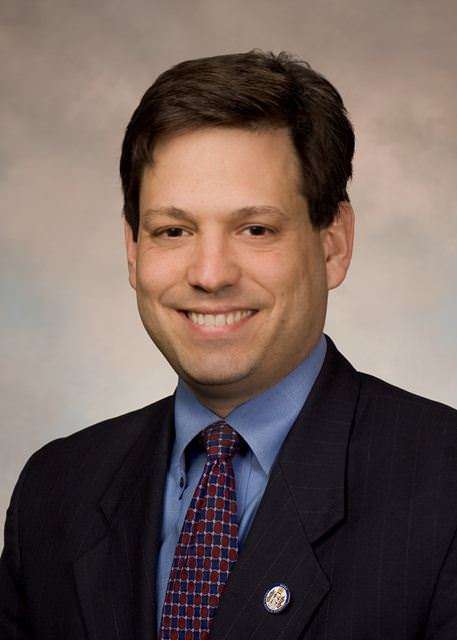Virginia Delegates Overwhelmingly Approve Major Forfeiture Reform
The bill, now before the state Senate, requires a criminal conviction to complete a forfeiture.

Last week the Virginia House of Delegates overwhelmingly approved a bill that would effectively raise the burden of proof for civil forfeitures by forcing the government to return seized property unless it can obtain a criminal conviction. The bill, introduced by Del. Mark Cole (R-Spotsylvania) and Del. Scott Surovell (D-Mount Vernon), passed by a vote of 92 to 6 and is now being considered by the state Senate.

Virginia received one of the lowest grades (a D–) in the Institute for Justice's 2010 review of state forfeiture laws. One reason was that police there can take property based on a "preponderance of the evidence" standard—i.e., by showing it's more likely than not that the property is connected to a crime. That's equivalent to any probability greater than 50 percent, as opposed to the much higher "beyond a reasonable doubt" standard for a criminal conviction. Under current law, the owner need not be charged with a crime, let alone convicted. Under Cole and Surovell's bill, the government could keep seized property only after a "conviction of the offense authorizing the forfeiture," which would make state forfeitures considerably more difficult.
That conviction does not have to involve the owner, however. Someone who uses an asset (a car or a home, say) in connection with a crime could be convicted, whereupon the asset would be forfeited, even if it belonged to someone else. Once a "substantial connection" between an asset and a crime is established, Virginia puts the burden on innocent owners to prove their innocence, and this bill does not change that.
The bill also does not change the allocation of forfeiture proceeds. In Virginia 90 percent of that money goes to law enforcement agencies, with the rest allocated to forfeiture-related administrative expenses. That arrangement warps police priorities by creating an incentive to target people based on the assets they own. Finally, this bill does not stop Virginia agencies from evading state limits on forfeiture by participating in the Justice Department's Equitable Sharing Program, which remains mostly intact despite the changes recently announced by Attorney General Eric Holder.
Still, Cole and Surovell's bill represents a major improvement, and it's encouraging that it was supported by all but a few delegates. Rob Poggenklass, an attorney with the ACLU of Virginia who is testifying in favor of the bill today, says "it has a good shot in the Senate if it gets out of committee."
Editor's Note: As of February 29, 2024, commenting privileges on reason.com posts are limited to Reason Plus subscribers. Past commenters are grandfathered in for a temporary period. Subscribe here to preserve your ability to comment. Your Reason Plus subscription also gives you an ad-free version of reason.com, along with full access to the digital edition and archives of Reason magazine. We request that comments be civil and on-topic. We do not moderate or assume any responsibility for comments, which are owned by the readers who post them. Comments do not represent the views of reason.com or Reason Foundation. We reserve the right to delete any comment and ban commenters for any reason at any time. Comments may only be edited within 5 minutes of posting. Report abuses.
Please to post comments


So does this legislation only apply to VA state LEOs or does it apply to local LEOs as well?
Ok, I read the linked article and the law applies to all state and local LEOs in VA.
The government gives you your assets back after you prove your innocence, so I'm not sure why people have such a problem with it. I mean no harm, no foul, right?
Yeah, no problem. A state policy of guilty until proven innocent has historically resulted in wonderful outcomes for individuals, particularly minorities.
You don't understand. Everyone is guilty. Cops only arrest bad guys. That's why we need asset forfeiture. To keep bad guys from having the means to defend themselves in court. Otherwise you're soft on crime. Duh.
You dumb cunt. The way this law is abused is that cops overcharge and the DAs go along with it. So here's the offer - "Voluntarily surrender your property/cash or we'll charge you with Crime X. Sure, you might be able to beat crime X, but it'll cost you $20k in attorney's fees. So just sign over the property and it'll be all good."
You dumb fuckface, statist shithole. Fuck you.
This is a major step forward, although the potential to lose property that was unknowingly used by someone else in a crime is still problematic.
What happens if you rent a house out to someone who uses it as a grow operation?
Or if someone steals your car and uses it in a crime?
I mean, one would think that the cops have an absolutely responsibility to return stolen property to it's owner, if they somehow recover it. Especially since it should be really easy to identify the rightful owner of a car.
But here, the law is basically saying they can keep it and sell it.
How long until cops enter into a profit-sharing agreement with car thieves?
"The state gets 10%, you gets 10%, we gets 80%. It's win-win-win. Just don't piss us off or we'll actually convict you."
They already do this with burglars. They ignore their shenanigans in return for drug tips.
You don't think some of them do this already?
What they currently do seems more like extortion than profit sharing. Tomayto, tomahto, I guess.
Once a "substantial connection" between an asset and a crime is established, Virginia puts the burden on innocent owners to prove their innocence, and this bill does not change that.
Unacceptable.
It's a step in the right direction. Have you ever tried to train a dog by only using constant negative feedback? It just doesn't work.
No it's not. It'll just cause the cops to file more bogus charges against innocent people. It's fucking bullshit.
One step at a time.
You can't postpone the cops' potty-training simply because they haven't mastered arithmetic yet.
(this is simply a metaphor - of course the cops know enough arithmetic to count their loot)
That's only in the cases where the crime was cimmited by someone other than the owner of the property. They still have to get an actual conviction of a person for an actual crime.
This will put an end to things like cops taking $10K from a car at a highway stop. They will have to get an actual conviction to take that cash.
What concerns me is that police are tolerated in their use of the "budget woes" argument in favor of asset forfeiture. Asset forfeiture was initially intended as a tool to be used against drug lords (right or wrong). It's turned into a budget helper.
Police should operate solely from those funds allocated to them by the state as part of normal government budgeting. To allow them to collect their own operating funds by use of force is dangerous and immoral.
Indeed. Everything has an legitimate owner. Police should strive to find that owner and return their property. In the rare event that the legitimate owner can't be found the property should be sold and the proceeds disbursed among victims of violent crime, or something.
The budget thing gets me.
There has been no concurrent zeal to cut states' criminal violations along with the zeal to cut taxes/spending on the state level (reducing regulatory red tape for businesses =/= fewer criminal violations).
The police agencies and DA offices, tasked with enforcing the same number of criminal statutes, had to get imaginative with funding. God forbid elected sheriffs and DAs actually come clean and say "we don't have the money to prosecute as many people so we won't"; that'll result in an immediate "YOU LOVE CRIMINALS" campaign against them...
Nobody gets elected by getting rid of laws.
Eh, it's a step in the right direction. It should, however, include a provision outlawing "equitable sharing" seizure with federal agencies unless the seizure meets this new "maybe a crime should be proven first" standard.
It's not a step in the right direction. It'll just result in more criminal charges being filed against innocent people, with the carrot of a plea agreement to dismiss if the person voluntarily gives up the property.
Fuck you, statist.
Of course, one may actually wish to use the seized assets in mounting a defense against said allegations.
So...you're guilty until proven innocent and you can't pay for a lawyer.
Why?
FUCK YOU, THAT'S WHY!
HAHAHAHAHA!
Public Defenders won't represent you in civil cases (which is what the vast majority of state forfeiture cases are). So good luck on that.
I routinely tell potential clients, "less than 10k in cash stolen from you by the cops? I'd cost more than that. Sorry."
Feral cops need tied up even more, since the last good cop left decades ago, they can't ever be trusted except to break the law. Tie them up with thousands of pages of rules and quadruple the penalties when they are caught.
Paying the lowest life found to keep the peace is the dumbest thing in the world.
Actually requiring a conviction prior to the forfeiture of things, money, and or other valuables, which amounts to punishment. How outlandish, how quaint an idea. Questions remaining are:
1. Will the state senate sign on to this idea?
2. Will the governor sign the legislation.
By the way, should it come to pass that the forces of Law and Order happen to notice a sharply diminished level of cooperation between themselves and the generally law abiding public, they need not ponder on the why's of the situation. They might however need to look in the mirror.
"The bill also does not change the allocation of forfeiture proceeds. In Virginia 90 percent of that money goes to law enforcement agencies, with the rest allocated to forfeiture-related administrative expenses."
Have no monies go to law enforcement (just those two words are funny) and the greedy pigs won't have incentive to steal people's money and stuff. Then they can go back knocking down wrong doors and resume shooting people in bed and burning babies with gas canisters.